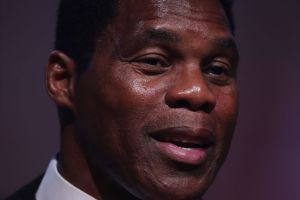Readers of Spectator’s USA’s mothership, the venerable yet sprightly London Spectator, will know that one of the secrets of the Spectator’s endurance and popularity is the promiscuity—ideological, of course—of its columnists.
Turn the page from Matthew Parris to Rod Liddle, and you undergo a whiplash of the most bracing kind. Parris is an ex-Conservative MP who, if not one of the ‘wets’ that Margaret Thatcher dismissed for ideological ploppiness, is certainly well irrigated with metropolitan manners. Rod Liddle, having worked at the BBC and being a member of the Labour Party, is on a Genghis Khan-like rampage against political correctness, Islamism and the decline of pop music.
No American magazine has encouraged that kind of variety since the New Republic in the Nineties. This is a pity, and not just because the feuding of the hacks makes for good sport. Left or right, we need more debate, and especially across the left-right divide. A chorus of columnists and commentators shouldn’t sing from the same sheet. It’s not about asserting who is right, so much as seeing what’s left after the dispute of voices.
So it is with the utmost respect for my esteemed colleague Jacob Heilbrunn when I suggest that he might, just possibly might, have been talking through his proverbial headgear in Monday’s article.
‘Before anyone awards Trump a Nobel Peace Prize.’ Jacob asks, ‘they might ponder whether peace in Korea will make a disastrous new war in the Middle East more likely’.
I pondered, and I came to the opposite conclusion. There’s no doubt that there has been extensive linkage between North Korea and the Middle East. None of it has been good. North Korea helped to build a secret plutonium reactor in Syria, which the Israelis were obliged to bomb in 2007. In February, a UN report claimed that between 2012 and 2017 North Korea had sent to Syria at least forty secret shipments of prohibited ballistic missile parts and materials, and that North Korean missile technicians had been seen working at known chemical and missile facilities in Syria. The Assad regime paid in cash, and the money, the UN suspects, helped fund North Korea’s nuclear program.
The North Korean and Syria regimes have also eroded the taboo against using chemical weapons. Assad has used them against his subjects, and Kim Jong-un had his brother killed by a nerve agent. Perhaps more alarmingly, the regimes have conspired to proliferate nuclear technology and weaponry. All this makes a ‘disastrous war’ in the Middle East more likely. The nightmare scenario for the region is a nuclear arms race, triggered by one state crossing the nuclear threshold. Saudi Arabia, Turkey and Egypt have all threatened to accelerate nuclear research should Iran go nuclear. They would have done the same if Assad had managed it. And ponder how much more brutally Assad would have fought in the Syrian Civil War, had he been protected by his nuclear umbrella.
So, cutting the North-Korea-Middle East link would be good. It would block a significant conduit of the kind of dangerous materials into the Middle East that, by shifting the balance of power in an already unbalanced region, could lead to all-out war, and of the kind that the United States could not help but be dragged into. But does it, as Jacob asks, make war more likely, by freeing the Trump Administration from the risk of a two-front crisis, and thus placing Iran under greater pressure?
No, it doesn’t. There are three reasons for this. One is that the Middle East is already well into a disastrous new war. This is the war of Shiites and Sunnis, and Persians and Arabs, with Turkey and Israel as wild cards. It is already under way in Iraq, Syria, and Yemen, and its alignments have already reset the terms of Lebanese and Palestinian factionalism.
We might ponder whether recertifying the Iraq Deal, rather than hastening the apocalypse, might allow Iran to continue its destabilization of the region. The further Iran’s reach, the more likely all-out regional war becomes. The initiative is with Iran, not the United States, which squandered its strategic credibility under the Bush Administration, and then abandoned its regional position under the Obama Administration.
The second reason is that the US military is designed to fight in two theaters at once. Nor does entry into war require a concentration of diplomatic or political energies. It is possible to sleepwalk into war, just as we have done in the Middle East. As I said, disconnecting North Korea from the Middle East reduces the chance of a nuclear or chemical spark leading to a regional detonation. It doesn’t alter the fact that Iran is on the march, and is forcing a confrontation with the United States, and its allies and interests.
The third reason is that the United States, if it wants to remain a global power and retain the advantages of the post-1945 world order, has no choice but to do what empires, and even quasi-empires, always have to do: to assert its interests, by supporting its allies, and to avoid inserting its troops on the battlefield. On that much, I think Jacob and I agree.


















